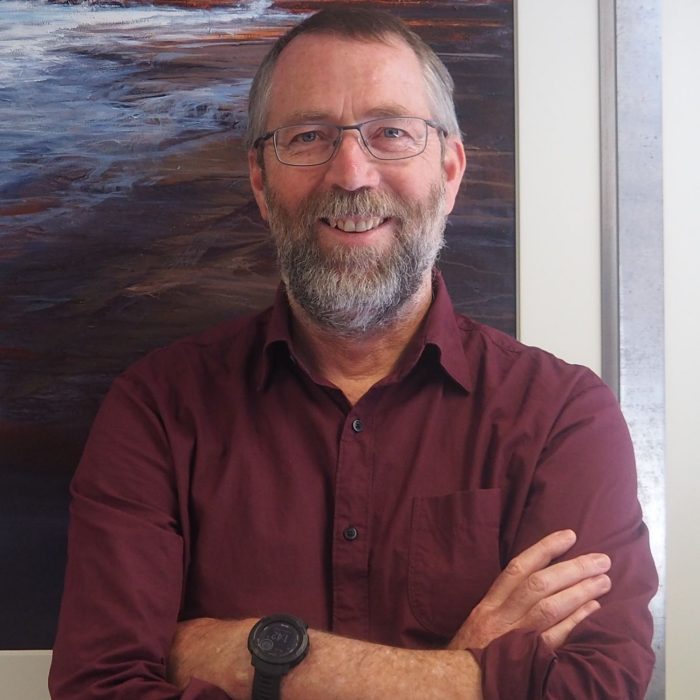Our School

Head of School
Professor Andrew Francis (pictured above) is the current Head of the School of Mathematics and Statistics.
Undergraduate and postgraduate programs
The School's undergraduate programs cover a wide spectrum of courses in pure and applied mathematics and statistics. The School's alumni are found in an extraordinary range of careers.
Our postgraduate programs include coursework degrees (at graduate diploma and Masters levels) and vigorous research programs leading to MSc and PhD degrees. Currently, the School has around 70 postgraduate students, of whom over 50 are enrolled in the PhD program.
Over the past 30 years, the School has graduated more than 200 research students, many of whom have gone on to distinguished careers in Australia and throughout the Asian region.
Several members of staff are using YouTube to enhance their teaching and to strengthen students' understanding of mathematical methods and concepts. Visit our School's YouTube channel to see some of our teaching staff in action.
Mathematics and statistics underpin numerous fields of scientific endeavour and our excellent teaching informs many other disciplines. Our programs in mathematics and statistics have diverse applications and we are proud to offer the largest range of courses nationally.
Quick links
An outstanding mathematical research centre
In addition to our role of teaching students of mathematics, science, engineering and many other areas, the School has become one of Australia's most important centres of mathematical research. Our success in obtaining funding from the Australian Research Council and other external funding bodies is a measure of its national importance. In each of the last five years, its external funding has been around one million dollars, which is more than any other mathematics department in the country and more than the total external research funding of many universities.
Outreach
The School of Mathematics and Statistics is involved in a wide array of outreach activities to engage high school students with mathematics. This includes high school visits, a workshop for female high school students, a Student Ambassador program, participation in a work experience program and other campus-based events. More information can be found on our high school webpages.
The School of Mathematics and Statistics has been a supporter of the Matraville Education Partnership. The partnership with Matraville Sports High School (MSHS) was a first-of-its-kind school-based university education program in which academics and students from UNSW work with Matraville students, teachers and the wider public to deliver a suite of educational, fun and supportive activities that are breathing new life into the school and its community. Maths students have become mentors to the MSHS year 7 cohort, working together regularly as part of the UNSW students' scientific communication course requirements.
International and industrial collaboration
A feature of the School's research is the unusually high level of international collaboration by its members, supported by a dynamic visitor program. In an average year, some 50 mathematicians from around the world spend periods of two to four weeks as visiting professors in the School, conducting joint research with local mathematicians and statisticians, giving seminars and making themselves available for consultation with students working in their area. The School has strong links with industry, both through teaching partnerships and active collaborative research programs.
Computing facilities
Our computing facilities are among the best in Australia. We have our own Computing Centre, which manages the School's distributed computing environment of Linux and Windows desktops, including a high performance Linux computational cluster. The School recognises both numerical and symbolic computing as an integral part of its research activities and is continually improving its access to high performance computing and scientific visualisation facilities.
